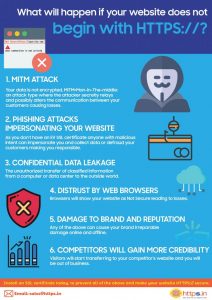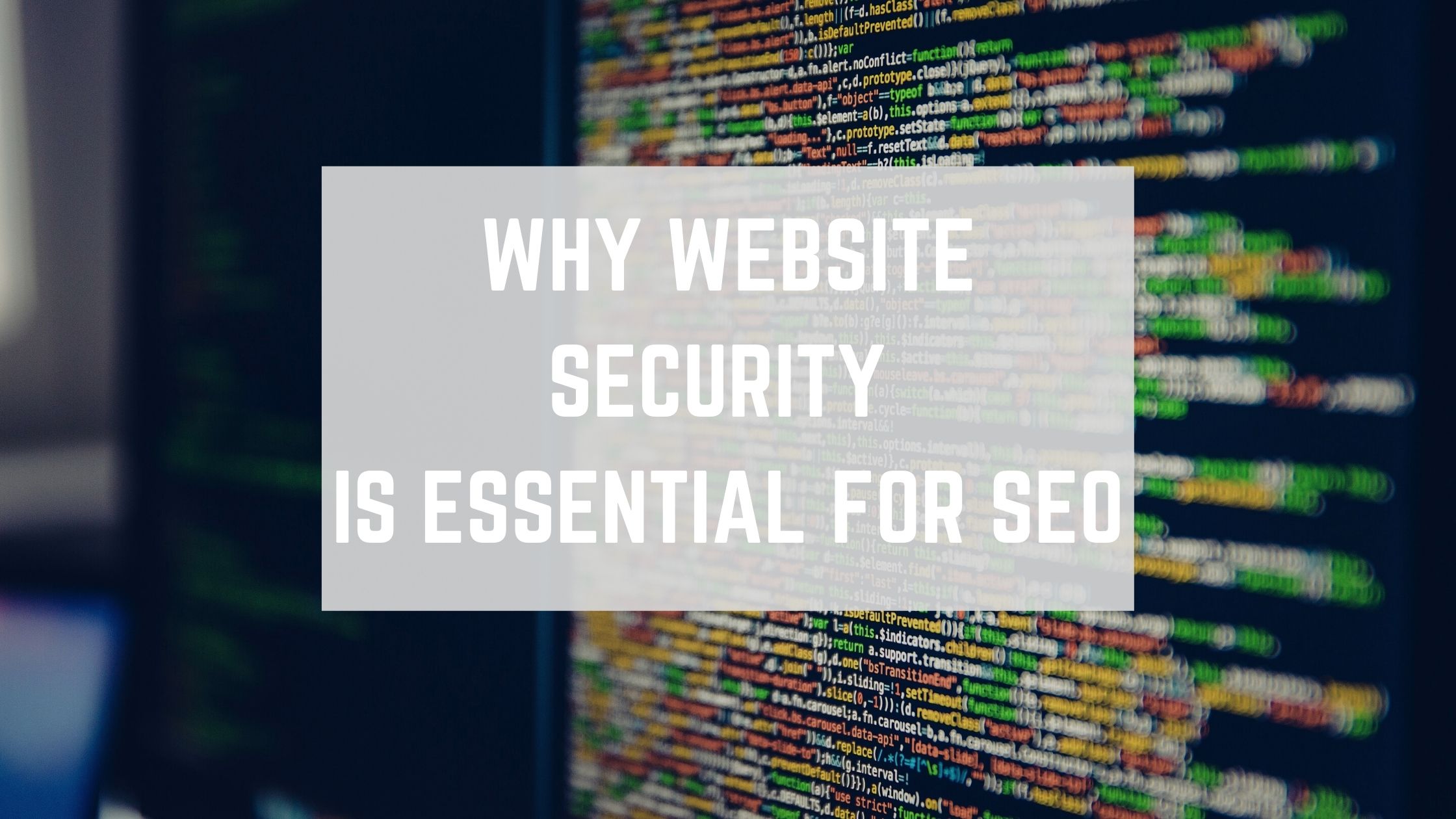Website security is essential for SEO. Google confirmed that their algorithm prioritizes websites with HTTPS and an SSL certificate. If a website doesn’t have these security measures it will warn users that the site appears suspicious, encouraging them to go “back to safety” or even blacklisting the site. Having a secure page increases the speed of a webpage, further helping a site’s SEO. Even more, a secure website builds brand reputability and creates a sense of trust among users of your site as well as protects your business.
Contents
The Importance of HTTPS and an SSL Certificate

An SSL certificate is crucial in protecting the data of website visitors and ensuring your page is secure.
The first step in web security is ensuring your site is HTTPS encrypted. HTTPS stands for “Hypertext transfer protocol secure”, which is a secure, encrypted way to communicate information between browser and website. This protects both your information and any sensitive information users are inputting when communicating with your site. Another part of web security is procuring an SSL certificate. SSL or “secure socket layer” is a certificate that encrypts data, further protecting user information.
Why Do Website Security Certificates Matter?
Your website should be HTTPS encrypted and have an SSL certificate. But why? What happens if you choose not to have these on your site?

Using HTTPS encryption has many advantages, including protecting your brand’s reputation and making it easy for users to access your site with their browser.
Secure Your Brand Reputation
Chrome will flag sites without an SSL certificate and a URL beginning with HTTPS, urging users to “go back to safety”. Users can access your site if they still wish to, but Google’s security measures make this more difficult and at this point, many visitors will simply click away. Outside of impacting site traffic, it’s a huge penalty for customers to think of your site or brand as untrustworthy. It’s difficult to recover once users have deemed your brand as untrustworthy.
Google will “blacklist” your site if it doesn’t security measures and appears unsafe. This means Google will remove it from search engine indexes and block users from accessing your domain. Google’s algorithm is constantly assessing the security and trustworthiness of any site a user is trying to access, so having a secure and up-to-date site means your website will run faster, improving your SEO, increasing your business’ profit, and creating a better user experience.
Improve Your Ease of User Access
These days, we live in a world where things are competing for our attention every minute of the day. Users aren’t likely to wait around if they can’t get the information they want fast enough from your site. Slow websites mean losing out on potential business.
Website Security Measures Can Stop Cyber Attacks Before They Happen
In addition to worse website SEO, poor security risks cyber-attacks, malicious bots, and exposing visitor’s information. All of this is bad for your business’ image when your page appears unsafe. Keeping your page up to date and secure is one of the best things you can do behind the scenes for your website’s ranking in search engines. Even more, on average websites suffer from 58 attacks every day, so business owners should consider securing their own information as well.
Conclusion
SEO has many parts—it’s more than just using all the right buzzwords to bring in traffic. People might not even consider website security to be a part of SEO, but it can be a huge factor in driving users to your page. With website security now a factor in Google’s results ranking, it’s crucial for your business’ page to pass all the necessary requirements.


